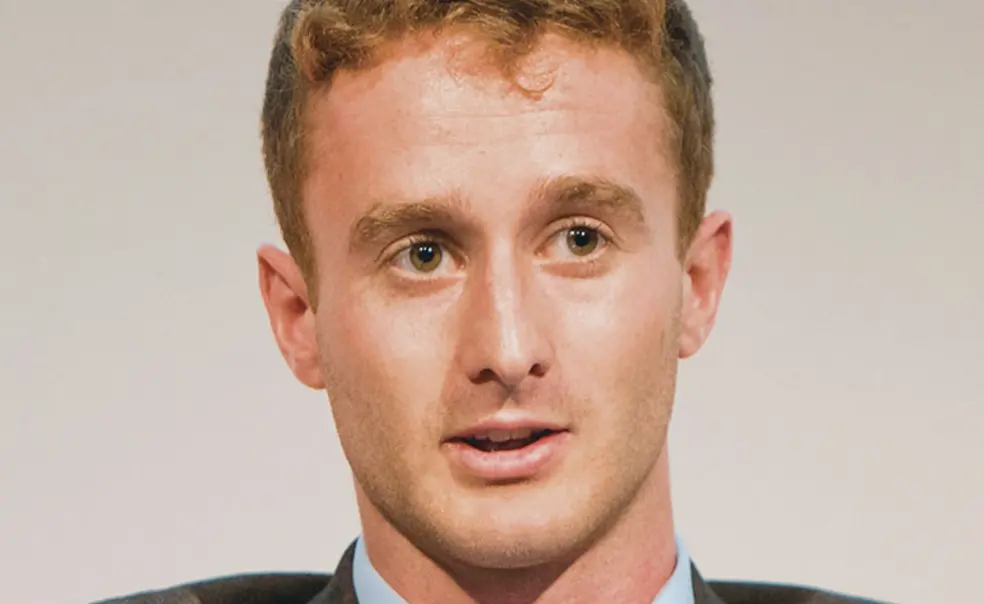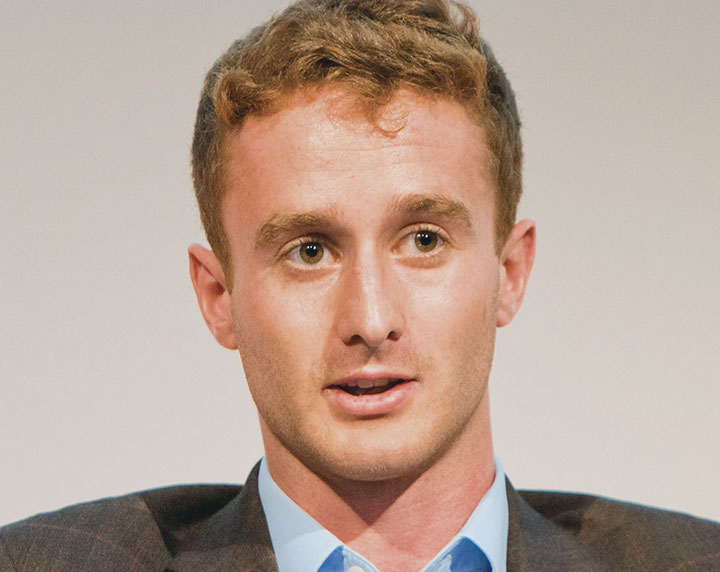Raphael Frankfurter ’13 was executive director of Wellbody Alliance, a health-care organization in Sierra Leone, from 2012 to 2015. A panelist at the Fung forum, he is now pursuing M.D. and Ph.D. degrees.
You were an anthropology major. How did that help you when Ebola arrived in Sierra Leone?
My interest is in community interactions with the health system. I began going to Sierra Leone as a freshman and went back each summer as a part of my anthropology training, thinking about issues of trust and local forms of caregiving in a region that became an Ebola hot spot. Because Ebola is spread through acts of local caregiving and burial practices, it has brought into view the importance of thinking about these sociocultural issues.
Fung forum speakers described the importance of earning the trust of local residents. What are your thoughts on that?
Trust is built both in ensuring high-quality access to care for the poor, but also in thinking about and reflecting the values that communities have — so that when there’s an emergency, they will want to go to a health-care system.
What’s the outlook for the future in Sierra Leone?
It’s ironic that we’re talking about trust when much of the humanitarian apparatus is dismantling and scaling down what’s been created over the past two years. There’s a huge amount of attention and resources in Sierra Leone right now, and I think what is really going to make the difference is what is sustained.
Interview conducted and condensed by W. Raymond Ollwerther ’71













No responses yet